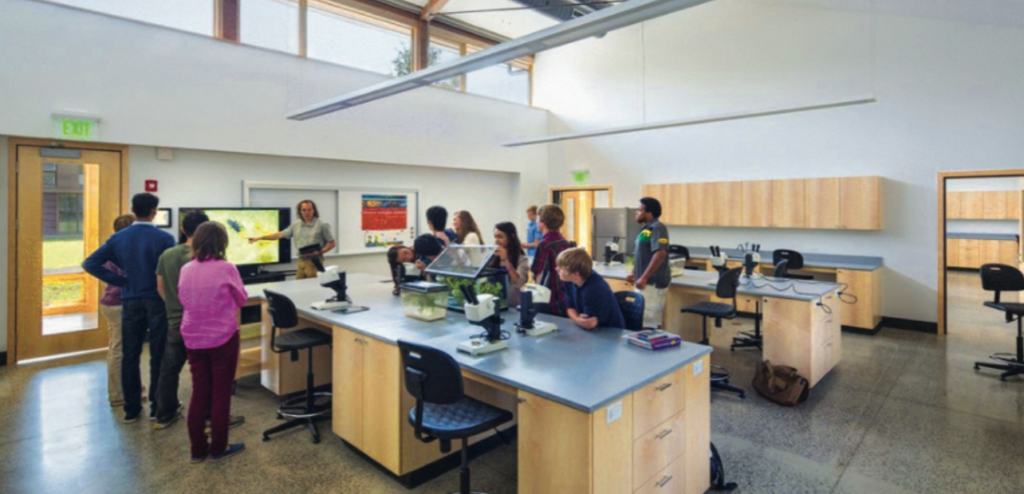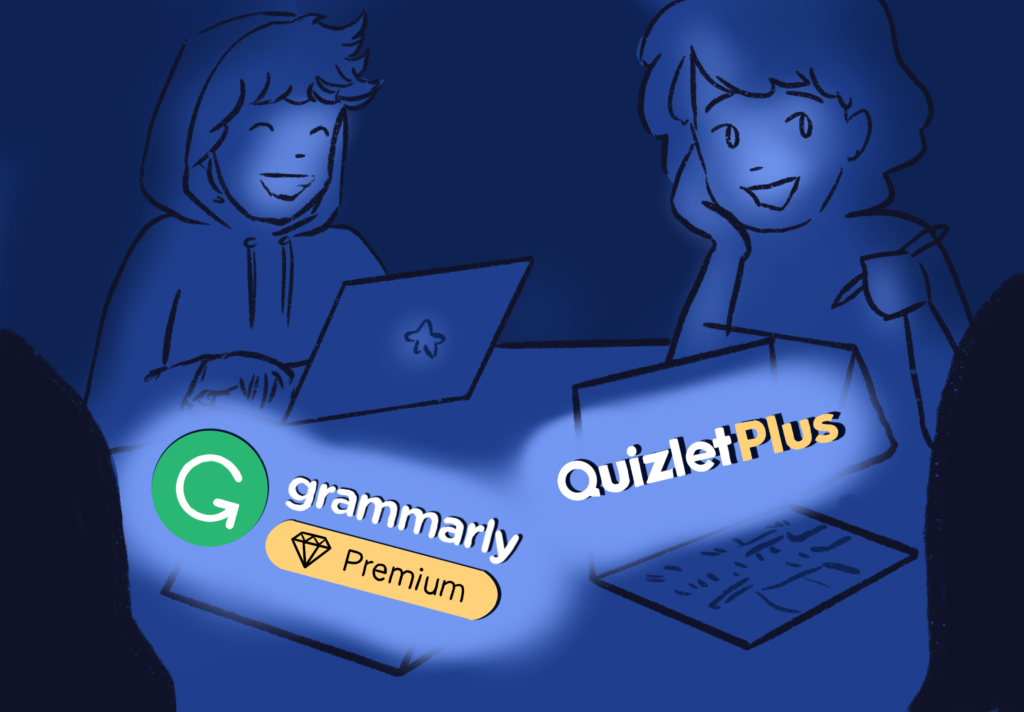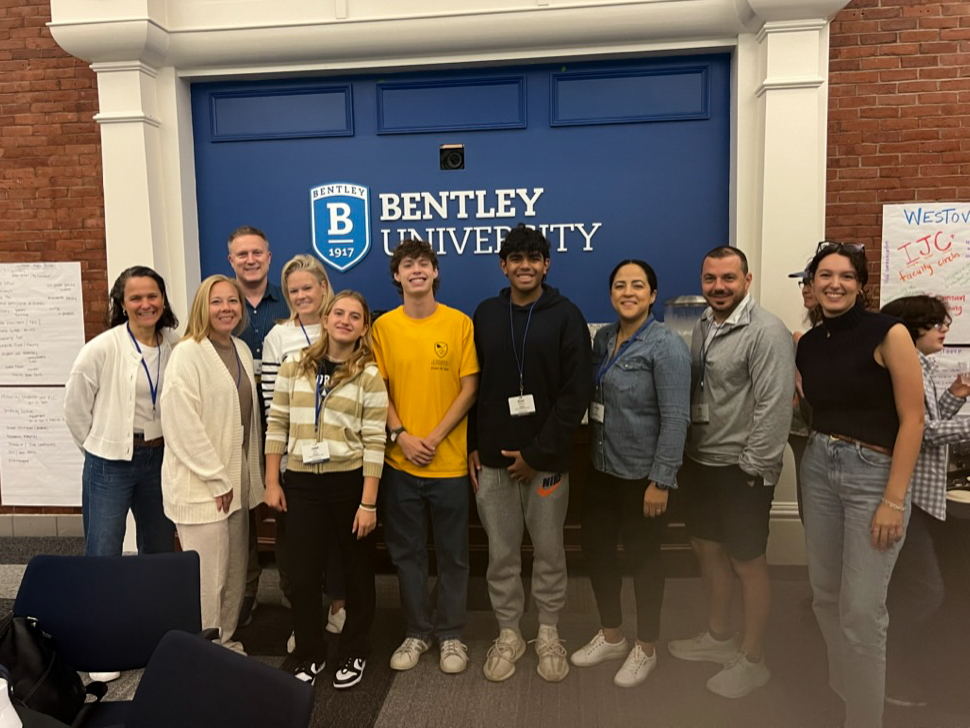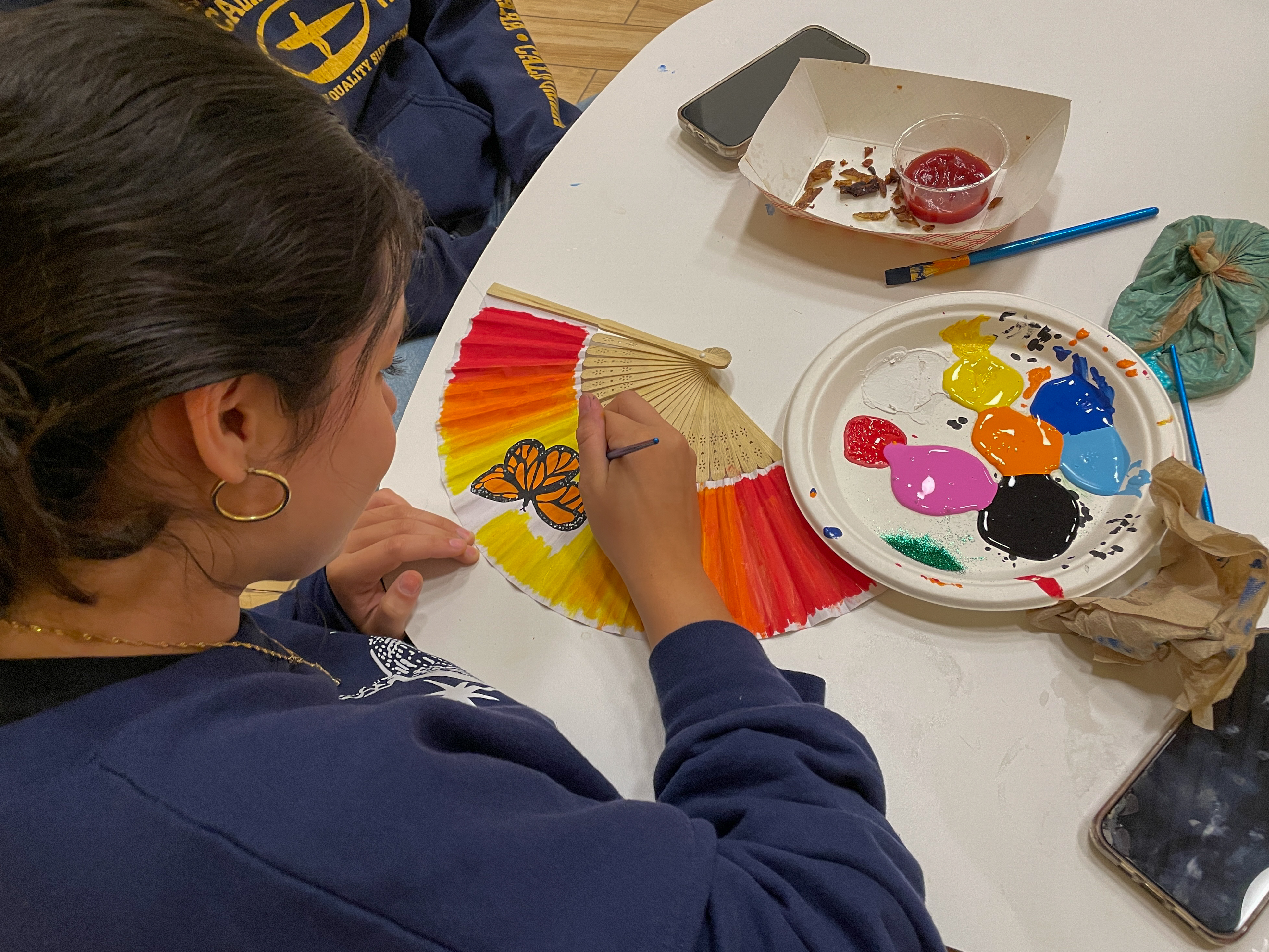
Mr. Joe Scanio, Program Director at the Kohler Environmental Center (KEC), assists Ananya Karanam ’18 in the greenhouse. Alleviating worries, next year’s new daily schedule will have little impact on the Environmental Immersion Program.
In the 2017-18 school year, students will have a new daily schedule that includes 70 minute class blocks, lunch blocks for all students, and the possibility of after school activities being pushed back. With these alterations, many of the special academic programs offered at Choate will be affected, particularly the Environmental Immersion Program (EIP) at the Kohler Environmental Center (KEC).
The current schedule in the EIP program allows students to travel back and forth from the main campus to take two main campus electives along with a sport or alternative activity. Most students take a math and a language course during E and F blocks, which stay constant throughout the week, thus making it easier to have travel arrangements to and from campus.
Although it seems as though there will be many schedule conflicts between the KEC schedule and the new class schedule, the new class schedule will actually better correspond with the KEC students’ schedules. For example, Saleha Farooqui ’18, a current student at the KEC, said, “The schedule is very similar to the one they are establishing here next year, so I don’t think the experience will be all that different for most KEC students.”
One reason for the new schedule is to decrease the homework load and to increase the hands-on learning in classes. Because the KEC focuses on research and hands-on experiences, the longer blocks of about an hour and thirty minutes already exist. Mr. Joseph Scanio, the director of the KEC, said, “Because we’re already focusing on the project work, collaborative work, and hands-on experiences, we have the longer blocks even in the humanities courses.” He added, “The current KEC schedule is like what the School is going to. We already have longer blocks. Classes meet twice or three times a week — we have a variety of lengths based on the needs of the class. In some senses, the Choate schedule is becoming more similar to the KEC schedule.”
So how is this new schedule going to affect next year’s KEC schedule, if it even affects the schedule at all? Mr. Scanio continued, “This shift of schedule is in fact going to make our schedules overlap even more than they have in the past. We’ll have to make sure that we can do the movement back and forth for the classes that students take here, but in terms of the philosophy of the classes, the new schedule is more similar to what it will be than what it has been in the past.”
The KEC schedule will change because of the longer classes on the main campus and the travel arrangements corresponding to the new schedule. However, students will still be able to take main campus electives. Farooqui remarked, “Class wise, I think KEC students will still be able to take the courses they want on campus.” Mr. Scanio agreed that the new schedule will not decrease the number of classes that students can take on main campus, such as math and language classes.
According to Mr. Scanio, the entire faculty met to discuss this new schedule. During the process, he was asked how the KEC could be affected by the new schedule. He said, “I was involved in this decision process as a faculty member. I answered questions about the KEC during the discussion by explaining that it would be important to maintain the flexibility of the students’ schedules so that students at the KEC could continue taking courses on the main campus.” Mr. Scanio believes that the most important process in coming up with the new schedule is combining the needs of all students, even EIP participants.
Mr. Scanio concluded, “It has been a good experience at the KEC to break away from the traditional experience and demonstrate the value of longer blocks as well as appreciate the flexibility in our schedule.” Following the example set by the KEC students, the new schedule may be a way for Choate students to further delve into and concentrate on their studies.





